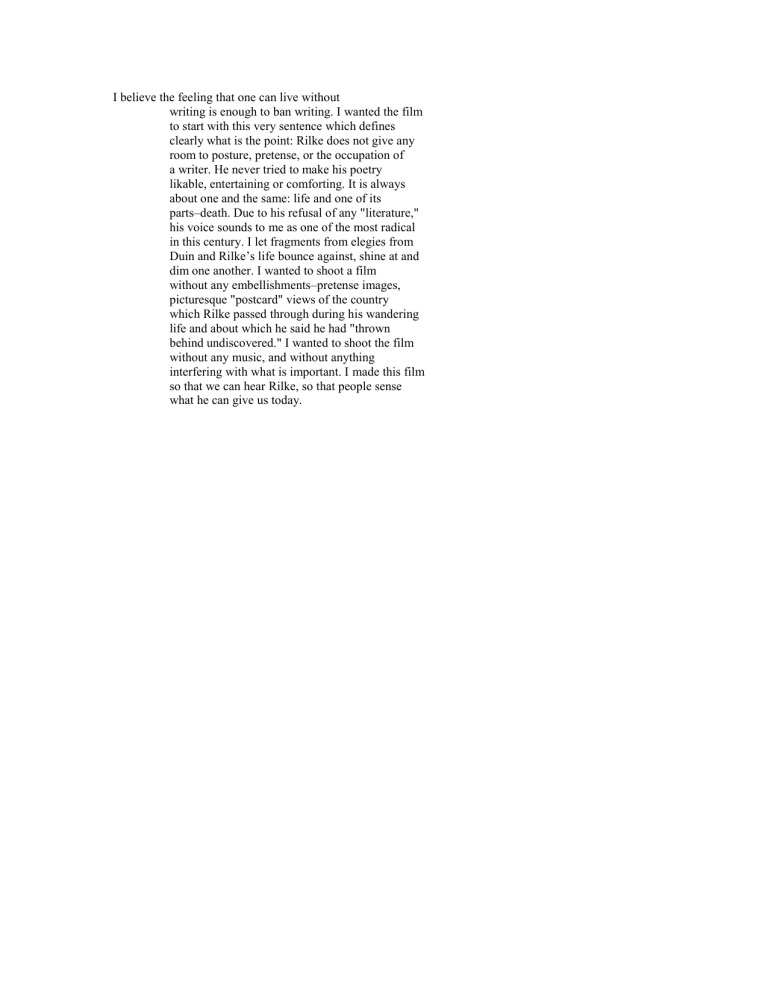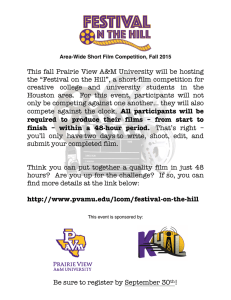I believe the feeling that one can live without
advertisement

I believe the feeling that one can live without writing is enough to ban writing. I wanted the film to start with this very sentence which defines clearly what is the point: Rilke does not give any room to posture, pretense, or the occupation of a writer. He never tried to make his poetry likable, entertaining or comforting. It is always about one and the same: life and one of its parts–death. Due to his refusal of any "literature," his voice sounds to me as one of the most radical in this century. I let fragments from elegies from Duin and Rilke’s life bounce against, shine at and dim one another. I wanted to shoot a film without any embellishments–pretense images, picturesque "postcard" views of the country which Rilke passed through during his wandering life and about which he said he had "thrown behind undiscovered." I wanted to shoot the film without any music, and without anything interfering with what is important. I made this film so that we can hear Rilke, so that people sense what he can give us today.

